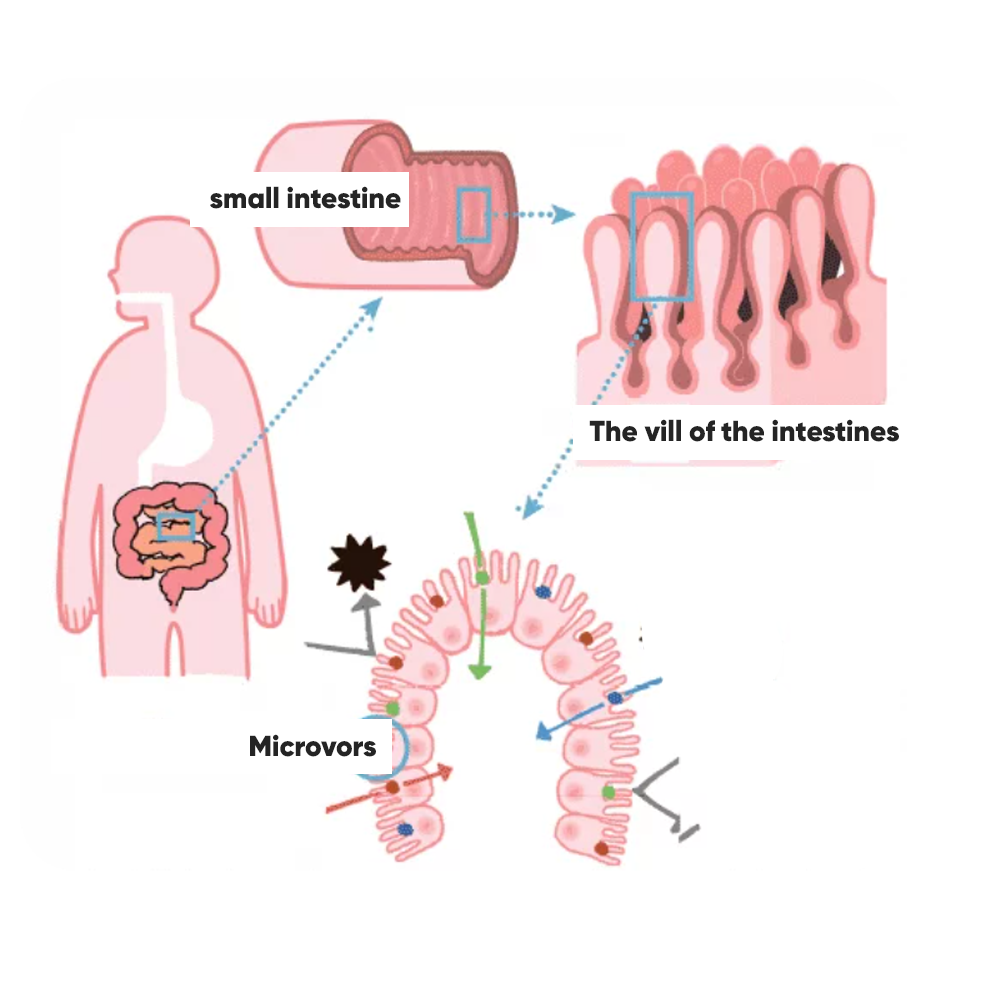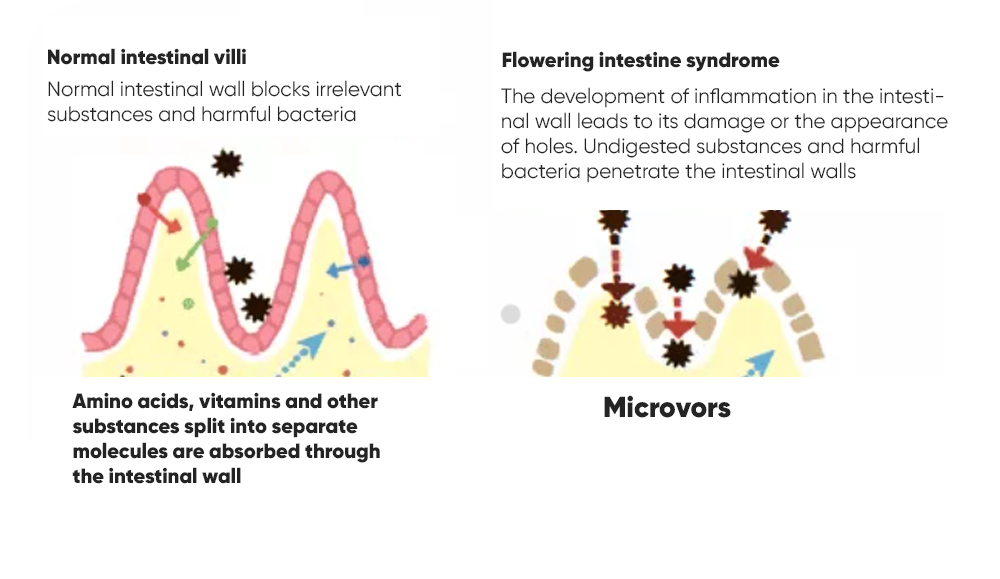
Suction. Nutrients such as sugars, amino acids and fatty acids are absorbed through the intestinal wall
Share
Nutrients enter through the small intestine
The small intestine is the place of absorption of nutrients. Absorption is carried out through the cells on its surface (epithelial cells). The small intestine reaches 6 m in length and contains many folds that increase the surface area for effective absorption of nutrients. When unfolded, the surface area is 30 square meters, which is equal to half the area of the badminton court. The surface of the intestine is covered with numerous protrusions"villi" and resembles a soft carpet. When the villi increase, microvilli become visible, which look like an even thinner carpet, and this is where suction occurs.
However, food is not absorbed randomly. For such glucose nutrients as amino acids, peptides, vitamins and minerals, there are special inlets where their active absorption is carried out. Even for water there is a special suction opening, which is strictly controlled.
Intestinal bacteria that help the "right hand of God"
On the contrary, nutrients and foreign substances unnecessary to the body are not absorbed by the cells of the intestinal epithelium and are excreted from the body. The immune system is designed to provide protection from external enemies, such as bacteria and viruses. It is the immune system that takes serious measures against objects that it recognizes as external enemies. So how does she react to food?The food is also an extraneous object and can become a target of the immune system. However, if that were the case, we would not be able to get nutrients, so usually the harsh immune system has to show some tolerance. This is the so-called oral tolerance. Despite its condescension ["it's very bad, but since you always eat it, I allow it"], the immune system conducts a thorough check to identify pathogenic microbes. For this reason, the intestine is sometimes called the "right hand of God."
Accordingly, if this wonderful selection function is disrupted, serious problems arise, such as the inability to fully absorb the necessary nutrients or remove harmful minerals, etc. It also leads to lifestyle-related diseases and mental disorders.
It is believed that 100 trillion intestinal bacteria of 200 species are involved in this crucial selection function
Leaky gut syndrome - the appearance of holes in the intestinal lining
In situations where the microflora ceases to function properly, the intestine is unable to maintain its mucous membrane in a normal state, which can lead to the appearance of holes in it. In the absence of a proper immune response, life-threatening conditions can develop.For example, infants have an increased risk of developing food allergies.
A condition in which holes appear in the intestinal mucosa that allow food molecules, intestinal bacteria, pathogenic microorganisms and other objects to leak into the body from the intestine is called leaky gut syndrome.
In the case of leaky gut syndrome, nutrients are more likely to enter the body from the intestine in the form of larger, undigested molecules. As a rule, proteins are broken down into very small molecules before they are absorbed through the intestinal epithelial cells. However, when holes appear in the mucosa, larger protein molecules can enter the body. This is considered to be the cause of food allergies.
 Contact with surrounding bacteria
Contact with surrounding bacteria
The appearance of holes in the mucous membrane can lead to serious diseases.The key to preventing the development of holes in the intestine is to increase the number of intestinal bacteria and strengthen the intestinal mucosa. To do this, it is necessary to introduce bacteria into the body, regardless of whether they are "good" or "slightly bad". We need to come into contact with the bacteria around us. Thanks to this, the intestinal microflora will actively develop, and the immune system will strengthen.
A normal intestinal wall blocks undigested substances and harmful bacteria.
In addition, the production of a large amount of fatty acids with a short chain stimulates the secretion of a special mucus by the intestinal wall, which restores and protects the damaged mucous membrane and enhances its protective function.
On the other hand, we should avoid actions that harm the microflora or intestinal mucosa. It is important to avoid unwarranted ingestion of substances such as antibiotics, food additives or chemicals.
In addition, the appearance of holes in the intestinal wall contributes to the regular intake of alcohol and a deficiency of minerals such as zinc. So be careful!
